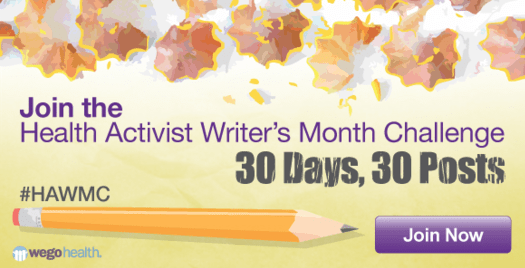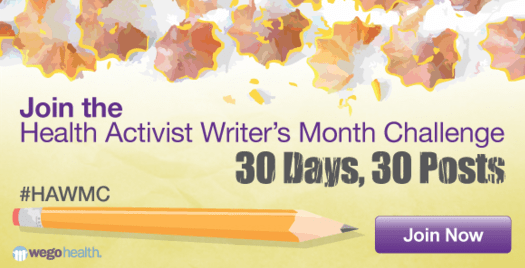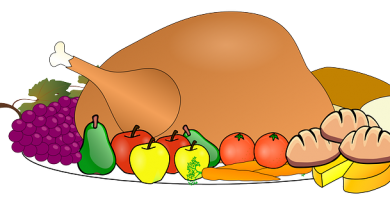Stress Awareness Month: 5 Strategies for Dealing with Chronic Illness #HAWMC

Wow. I can’t believe it! Where did the month go? It’s Day 19 of WEGO’s Health Activist Writer’s Month Challenge. Today’s question is:
Stress Awareness Month: What’s the best way you deal with stress? How do you like to let loose to escape common stressors? Share with us your favorite ways to shake off the stress. #shakeitoff #HAWMC
Life with a chronic illness(es) can be very stressful–there’s the disease itself and the paperwork that comes with it. And the endless parade of doctors’ appointments. I have bipolar disorder, polycystic ovarian syndrome, Myasthenia Gravis (MG, a neuromuscular autoimmune disease), psoriasis, and asthma. Last week, I had two days of consecutive doctors’ appointments. I rewarded myself by going to McDonald’s and ordering a Happy Meal and Oreo McFlurry. I haven’t had a McFlurry in ages. It brought me back to my childhood when the highlight of my week was eating my cheeseburger Happy Meal and apple pie while watching 20/20. I still have the opening with Hugh Downs and Barbara Walters memorized.
5 Strategies To Deal With Stress:
- Rewarding myself–After a week dealing with nausea, the usual everyday pain of myasthenia, and depression, I motivated myself by telling myself that if I finished my work I could watch Scandal live. And I did. It gave me something else to think about besides the depression: What fabulous outfit would Kerry Washington wear tonight? When is Olivia gonna finally pick Jake? Scott Foley’s eyes? (Okay, that last one is not really a question but you get the point.) Having something to look forward to helps me deal with the stress of maintaing a job despite chronic illness. Rewarding one’s self doesn’t need to be expensive; it’s finding pleasures in the little things of life.
- Talking to friends–I find that building a support network is important–a friend is not a therapist and should not be the only one you go to with your problems. There are times when pain–mental and physical–is tremendous. Just venting to a friend over the phone helps. And reciprocating–listening to that person vent about his/her problems, whether that’s everyday stress, annoying coworkers, deadlines, or illness–also helps.
- Exercising–Of course, this can be hard to do sometimes with physical limitations like fatigue, pain, disability, and depression (which is also a type of disability). I was bedridden for over a year due to MG and not sure if I would be able to walk again. So, I am grateful for the times I can exercise. As I blogged about in 4 Mental Health Benefits of Exercise, exercise keeps me sane. After 15 minutes, I start to feel less stressed out even though my situation hasn’t changed and I get new solutions for how to deal with my problems. Exercise releases endorphins, “the feel good hormones,” which are vital in fighting stress and depression.
- Mindfulness–I’ve been practicing mindfulness. As a result, I’ve been living in the moment more. When I wake up, instead of checking my email (and being stressed out by work), the first thing I do is fifteen minutes of meditation on what I’ve been reading (see #5) or fifteen minutes of praying. When I eat breakfast now, I don’t check Facebook or email, I just concentrate on eating and now, notice little things like sunshine peeking through the windows. I enjoy the moment more.
- Reading, memorizing, and reciting literature–I’ve learned to fill my mind with great literature during those moments in the past when I watched stupid TV shows I hated because I was so tired to do anything difficult. Fatigue has that effect. I’m pretty sure I lost hundreds of brain cells to True Tori last year. This year, I read and memorized the entire book of James (in the New Testament). It really helped me in dealing with grief from my friend Jess’s death, certainly a lot more than watching Tori Spelling’s divorce ever could! In stressed out moments, I recite the literature I’ve been reading. My friend, Carol, got me into Emily Dickinson. I just memorized this poem of hers and will memorize more poetry:
Each life converges to some centre
Expressed or still;
Exists in every human nature
A goal,Admitted scarcely to itself, it may be,
Too fair
For credibility’s temerity
To dare.Adored with caution, as a brittle heaven,
To reach
Were hopeless as the rainbow’s raiment
To touch,Yet persevered toward, surer for the distance;
How high
Unto the saints’ slow diligence
The sky!Ungained, it may be, by a life’s low venture,
But then,
Eternity enables the endeavoring
Again.






Great post.